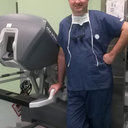Melatonin protects against ischemia/reperfusion injury in skeletal muscle.
Keywords
Abstract
Melatonin has been shown to diminish ischemia-reperfusion (I/R) injury in many tissues. The main aim of this study was to evaluate the protective antioxidant effect of melatonin in skeletal muscle during I/R injury. Wistar albino rats were randomly divided into three groups. Hindlimb ischemia was achieved by clamping the common femoral artery in two groups but not in control group. Limbs were rendered ischemic for 1.5 hr; at the end of the reperfusion period of 1.5 hr muscle tissue samples were taken for the histological evaluation and biochemical analysis. Melatonin (10 mg/kg) was injected i.p. in the I/R + Mel group at the onset of ischemia whereas the vehicle solution was injected in the I/R group. In I/R + Mel group histological damage was significantly less than in the I/R group (P < 0.001). In the I/R + Mel group, the mean malonedialdehyde level was lower than in the I/R group (P < 0.01) and was quite near to the levels in the control group (P > 0.05). Glutathione levels were found to be reduced in the I/R group compared with the control (P < 0.01) and I/R + Mel group (P < 0.01). Melatonin has a protective effect against I/R injury in skeletal muscle and may reduce the incidence of compartment syndrome, especially after acute or chronic peripheral arterial occlusions.



